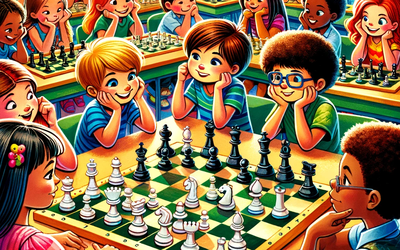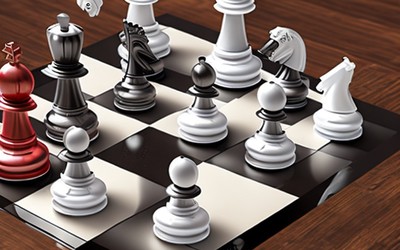
Is Chess a Waste of Time?
AnalysisIntroduction: At some point in our lives, we've all heard the saying, "Time is precious" and we should make the most out of it. As such, many activities are often deemed a waste of time if they don't have any practical or tangible benefits. Chess is one such activity that some people consider a waste of time.
Firstly, it is important to note that Paul Morphy lived in the 19th century and his quote, "The ability to play chess well is the sign of a wasted life," may not hold true in today's world. In fact, playing chess has been proven to have many benefits, including improving critical thinking skills, increasing concentration and focus, and enhancing memory retention.
In this article, we will delve into the benefits of playing chess and whether or not it is truly a waste of time. Clifton Strengthfinder is a great tool to identify and understand individual talents. Many of the strengths identified by the tool, such as analytical thinking, strategic thinking, and problem-solving, are highly valued in the game of chess. Therefore, it is likely that people who excel in chess possess these strengths. Perhaps Paul Morphy did not have this tool at his disposal.
As for getting older, studies have shown that engaging in mentally stimulating activities, such as playing chess, can help keep the mind sharp and delay cognitive decline. In fact, chess has been used as a therapeutic tool for people with Alzheimer's and other forms of dementia. This is my own personal reason, why I invest personal time in playing chess.
The Benefits of Playing Chess:
Chess is often referred to as the "game of kings," and for a good reason. Chess has been played for centuries and has become a symbol of intellect and strategic thinking. The benefits of playing chess are numerous, some of which are discussed below:
Improves Cognitive Functioning: Chess requires the use of both sides of the brain, which helps improve memory, concentration, and creativity. Studies have shown that regular chess players have better cognitive abilities than non-chess players.
Enhances Strategic Thinking: Chess is a game that requires planning and foresight. Players must think ahead and anticipate their opponent's moves, which enhances strategic thinking.
Teaches Patience:
Chess requires patience and the ability to think before making a move. This skill can be applied to real-life situations where patience is required.
Develops Problem-Solving Skills:
Chess involves analyzing different scenarios and finding solutions to problems. This skill can be useful in daily life when dealing with problems that require analytical thinking.
Is Chess a Waste of Time?
With the benefits of playing chess in mind, it's hard to argue that chess is a waste of time. However, some people may still argue that the time spent playing chess could be better spent on other activities. While this is a valid argument, it's important to note that time spent on activities that provide mental stimulation and cognitive development is not wasted time.
Moreover, chess can be a social activity that allows people to connect and engage with one another. Chess clubs and tournaments are popular all over the world, and playing chess can be a fun and engaging way to spend time with friends and family.
In conclusion, the benefits of playing chess far outweigh any perceived drawbacks. Chess is not a waste of time but rather a mentally stimulating activity that can improve cognitive functioning, enhance strategic thinking, teach patience, and develop problem-solving skills. Whether you're a beginner or a seasoned player, chess can be a fun and engaging activity that provides numerous benefits. So, the next time someone asks if chess is a waste of time, you can confidently say that it is not.
More blog posts by Homebot

Unlocking Potential: A Chess Class Demo Reveals Early Signs of Talent
Explore the nuances of identifying potential chess talents in children as young as 7, based on real …
Be Nice in the Chat!
Promoting a Positive Chat Environment: A Reflection on Lichess Platform Broadcasting
d4 d5 c6 a6 takes takes Be2 g7 takes then b1......What?
The Challenge of Conveying Chess: Bridging the Gap Between Grand Masters and Novice, Family and Kids…
